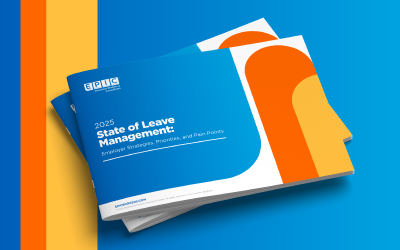Quick Facts
- The EEOC recently provided clarifying guidance on permitted COVID-19 vaccine incentives under the ADA and GINA.
- According to the EEOC guidance, application of the EEOC wellness rules differs depending upon whether the pre-vaccination screening and COVID vaccine are administered by an unrelated third party.
- Employer-administered vaccine programs may not provide an incentive that is “coercive” in nature.
Introduction
Some employers require employees to obtain COVID vaccines as a condition of employment, while many others are instead choosing to offer incentives to encourage their workforce to obtain COVID vaccines. Any time an incentive is tied to a vaccine, it’s necessary to consider applicable nondiscrimination rules found under the Health Insurance Portability and Accountability Act (HIPAA), the Americans with Disabilities Act (ADA) and the Genetic Information Nondiscrimination Act (GINA). Under such rules, incentives for vaccinations are generally permitted so long as wellness program rules are followed.
The Equal Employment Opportunity Commission (EEOC) recently updated its COVID-19 Technical Assistance Q&A to provide further clarification on what is permitted under the ADA and GINA. The guidance addresses a broad array of topics, including taking temperatures and testing for COVID in the workplace, handling employees with symptoms or exposure to COVID, confidential handling of medical information, reasonable accommodations and vaccinations. The focus of this summary is on the EEOC guidance related to incenting employees, and perhaps their family members, to be vaccinated for COVID. HIPAA nondiscrimination rules, or wellness rules, are also addressed.
View the updated EEOC Technical Assistance (COVID vaccine incentive guidance can be found in Subsection K, specifically Q&A K.16-K.21).
HIPAA Wellness Rules
A group health plan that provides coverage for COVID vaccines, amongst other things, is subject to HIPAA. A stand-alone wellness program that provides or pays for vaccines may also be a group health plan subject to HIPAA. Under HIPAA wellness rules, a program that is considered participatory is only required to be made available to all similarly situated individuals; however, a program that is health-contingent must meet additional requirements. While not perfectly clear, because health status may affect an individual’s ability to receive a COVID vaccine (e.g., immunocompromised, allergies), it may be considered health-contingent. Therefore, the safest approach is to follow the HIPAA rules for a health-contingent program for any incentive tied to obtaining a COVID vaccine.
Health contingent wellness programs should comply with the following requirements:
- Participants must be given an annual opportunity to qualify for the reward;
- The maximum reward, or penalty, cannot exceed 30% of the total cost of coverage;
- The program must be reasonably designed to promote health or prevent disease, and must not be overly burdensome or a subterfuge for violating discrimination laws;
- The reward must be available to all similarly situated individuals and to individuals who qualify by satisfying a reasonable alternative standard; and
- The program must disclose the availability of a reasonable alternative standard in all plan materials describing the terms of the wellness program.
Employers that are not overly aggressive with the amount of the vaccine-related incentive and that offer a reasonable alternative standard to individuals who cannot obtain a COVID vaccine due to a health factor should be in good shape.
EEOC Wellness Rules
Any incentives tied to medical examinations or disability-related questions are subject to the ADA, and therefore EEOC wellness rules. In addition, any incentive tied to obtaining information about the manifestation of a disease or disorder of a family member is subject to GINA and should follow EEOC wellness rules. For COVID vaccine incentives offered to employees, the EEOC guidance clarifies that obtaining a vaccine is not a medical examination, but the pre-vaccination screening questions are considered disability-related questions. Application of the EEOC wellness rules differs depending upon whether the pre-vaccination screening and COVID vaccine are administered by an unrelated third party (e.g., pharmacy, personal health care provider, or public clinic) or by the employer (or its agent).
Screening and Vaccination Administered by Unrelated Third Party
The EEOC guidance indicates that when the screening and COVID vaccine are administered by an unrelated third party, the ADA and GINA do not apply, and therefore it is not necessary to consider EEOC wellness rules, including its incentive limits. In other words, because most COVID vaccines today are obtained from a third party, employers who are simply requesting proof of vaccination for employees or their family members can generally ignore the EEOC wellness rules, but any vaccination information obtained by the employer should be kept confidential.
Screening and Vaccination Administered by the Employer or Its Agent
If the employer is involved with the screening and vaccination process, for example, by hosting an onsite vaccination clinic, then the ADA and GINA may apply, and EEOC wellness rules should be followed. EEOC guidance indicates that if the employer is involved in the screening and vaccination process, the employer should not provide any incentive for participation by family members; the employer can allow them to participate on a completely voluntary basis but should not provide any incentive to do so to avoid violating GINA requirements. While employers should not incent family members for obtaining the vaccine, there is still some flexibility to provide an incentive to employees who participate in a screening and vaccination process administered by the employer or its agent. The employer should keep the EEOC wellness requirements in mind, but employers who are not overly aggressive with the amount of the vaccine-related incentive and who offer a reasonable accommodation to employees who cannot obtain a COVID vaccine due to a religious or disability-related objection should generally be in compliance.
The EEOC wellness rules require the following:
- Those choosing not to participate cannot be denied group health plan coverage or be subjected to adverse employment action, coercion, or intimidation;
- The process must be reasonably designed to promote health or prevent disease, and must not be overly burdensome or a subterfuge for violating discrimination laws;
- Incentives cannot be provided to the extent they make participation involuntary (there is a lack of clarity on exactly what level of incentive is currently permitted under EEOC wellness rules);
- Participants must be provided with a notice that includes a description of the medical information collected, who will have access to it, and how it will be used and kept confidential;
- Information collected may generally be provided only in aggregate form unlikely to disclose the identity of specific individuals except as necessary to administer the plan. Information must be collected on separate forms, maintained in separate files, and treated as a confidential medical record;
- A reasonable accommodation is required if a disability or medical condition prevents individuals from participating or earning an incentive; and
- Participants may not be required to agree to the sale, exchange, sharing, transfer, or other disclosure of medical information (except as permitted to carry out activities related to the wellness program), or to waive confidentiality protections in place under the ADA as a condition for participating or receiving an incentive.
Summary
Employers are generally allowed to provide incentives to employees who obtain the COVID vaccine. In addition, if the COVID vaccine is obtained from an unrelated third party, an incentive could also be provided to employees’ family members who obtain the COVID vaccine. Employers should be careful to provide accommodations or alternatives to individuals who cannot participate due to a health status, disability or religious objection, and employers should not be overly aggressive with the amount of any vaccine-related incentive.
View our related Compliance Insights article
EPIC Employee Benefits Compliance Services
For further information on this or any other topics, please contact your EPIC consulting team.
Learn About Our Employee Benefits Compliance Services
EPIC offers this material for general information only. EPIC does not intend this material to be, nor may any person receiving this information construe or rely on this material as, tax or legal advice. The matters addressed in this document and any related discussions or correspondence should be reviewed and discussed with legal counsel prior to acting or relying on these materials.
DOWNLOADABLE RESOURCES
Sign up for our Compliance Matters Newsletter
You’ll receive our monthly newsletter, as well as special compliance alerts and invitations to our compliance webinars
Related Content
Products
Employee Benefits Consulting
Our dedicated benefits team is focused on delivering better outcomes – to both your benefits program and ...
Products
Compliance
We provide comprehensive consulting services and in-depth education regarding the ever-changing employee ...
Products
Wellbeing & Health Management
Our consultants help you create a strategy around health management that will impact your culture and your ...


